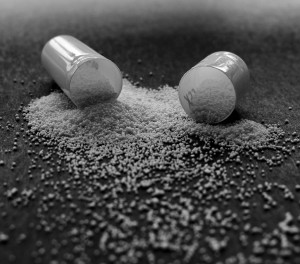Opiate Detox

When you go through a opiate detox program, you have a better chance to recovery.
Long term use of opiates can result in a reduction of natural endorphines which causes the nerve cells to degenerate and become physically dependent on the opiates. When such physical dependence occurs it is necessary for an individual to enter into opiate detox in order to safely withdraw from the opiates. Sudden withdrawal from opiates can lead to permanent damage to the central nervous system so it is never advisable to undergo opiate detox alone.
Opiate Detox Centers Provide a Safe Place to Overcome Opiate Addiction
Opiate detox can be a painful process that, when not performed properly may result in long term and permanent damage to the central nervous system and cardiopulmonary system. If a patient is not healthy when they begin opiate detox it is possible for them to actually die as a result of abruptly stopping the use of the drug. Opiate detox centers provide individuals with a safe place to withdraw from opiates under supervised medical care.
Opiate detox centers usually will offer a range of medications that can help the addict to overcome the withdrawal symptoms associated with opiate detox. The most commonly used opiate detox drugs include Methadone, Buprenorphine, Clonidine, and Suboxone. Other medications may also be used in the treatment of opiate detox depending on the type of drug being eliminated and the severity of the addiction or withdrawal symptoms.
Symptoms of Opiate Detox Withdrawal
Opiate withdrawal symptoms range in severity and depth. The most common symptoms of opiate detox and withdrawal include:
- Tremors
- Insomnia
- Anxiety
- Flu Like Symptoms
- Hallucinations
- Delirium
- Sweating and Chills
- Bone Pain
- Muscle Pain
- Confusion
- Irritability
- Muscle Spasms
Although most of these withdrawal symptoms are usually not deadly there is a risk of death associated with opiate detox. For this reason, it is advisable that opiate detox never be done without the supervision and medical care provide by an opiate detox center. Opiate detox centers provide patients with a safe and secure facility where they can properly manage any physical discomforts associated with opiate detox.
Suboxone Treatment for Opiate Detox
Suboxone is used to manage the addiction to various opiates including heroin and hydrocodone as well as oxycodone and OxyContin, some of the most dangerous and addicting drugs on the prescription drug market.
Although methadone treatment has been standard for opiate detox in the past years a recent rise in Suboxone treatment has been seen. Suboxone treatment is widely effective for opiate detox because the drug is made up of both Buprenorphine and Naloxone which are two commonly used opioid antagonist drugs that deter that use of opiates. The downside to this type of opioid detox medication is that, like methadone and other opiate detox drugs, the patient will have to be weaned from the replacement drug as well.
Clonidine for Opiate Detox
Clonidine is a transdermal patch that dispenses a gradual and consistent amount of the drug over a period of a week. Clonidine is used in opiate detox to block the withdrawal symptoms that are felt during the first days of opiate detox. The Clonidine patch is administered and for the first two days that a patient begins opiate detox an oral form of Clonidine is also administered allowing the patch time to begin working. Clonidine can cause hypotension and sedation so patients who undergo opiate detox with this medication must be medically monitored for blood pressure changes.
Rapid Opiate Detox
A relatively new type of opiate detox is the Waismann Method also known as rapid opiate detox. Rapid opiate detox is undergone while the patient is in a hospital like setting and placed under general anesthesia. Rapid opiate detox is not for everyone and does have some risks but comes with its own benefits as well. For a patient wishing to complete opiate detox without the pain of a traditional opiate detox program the rapid opiate detox is an excellent option.